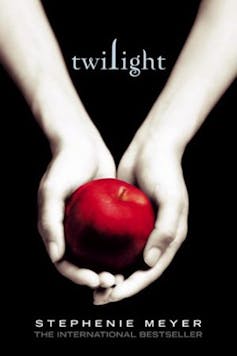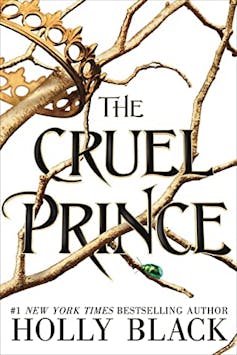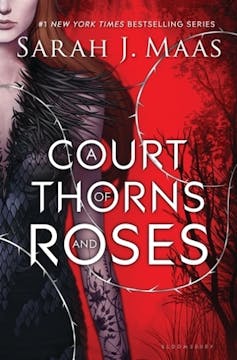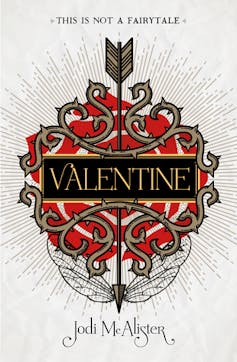Source: The Conversation (Au and NZ) – By Elizabeth Little, PhD Candidate, Deakin University
Sexual consent and young people have been in the news lately, from an online petition detailing thousands of high schoolers’ recollections of sexual assault and rape to calls for better school-based education.
What young people read is another important form of sexual education. Young adult (YA) fiction has a unique role to play in representing sexual relationships, but a number of popular YA fantasy novels send confusing and potentially harmful messages about sex and consent. Often, these are not addressed, such as when Shalia in the Reign the Earth series (2018-2020) is forced to consummate her marriage.
‘I didn’t feel love, or lust, or heat. I felt frightened … panicked beneath him.’
Rather than echo the “bodice ripper” content of some adult fantasy novels (where sex usually begins with domination), books for young readers can be an opportunity to unpack what consent is and isn’t.

Read more: Teen summer reads: how to escape to another world after a year stuck in this one
Characters young people relate to
Research shows young people use YA fiction as a source of sex education. Teens turn to novels to learn through the actions of characters they relate to. They identify with what is happening on the page and learn without having to seek advice or information from adults or peers.
Studies have also shown representations of sexual intimacy provide a behavioural script for young readers. These scripts are then put to use during their own sexual encounters. In one study, researchers heard from girls who used episodes of Buffy the Vampire Slayer to learn new “date moves”.

Because sex is a natural area of interest for readers, realist YA fiction engages with questions of sexual consent in clear ways. YA fantasy — the genre that includes the Twilight series and The Hunger Games — can omit some important aspects of this.
Psychologists have characterised schoolgirl Bella’s relationship with vampire Edward in Twilight as a template for violence and abuse, concerned fans may model real-life relationships on the narrative. Jealous Edward isolates Bella from her friends, family and potential love rivals, even sabotaging her car to prevent her escape from him.
Fantasy fiction is often set in a different time or place, but it still reflects contemporary concerns.
In many of these novels, the female character’s ability to say “yes” is denied to her. In Shelby Mahurin’s Serpent and Dove (2019), the female protagonist is forced into marriage. Brigid Kemmerer’s A Curse So Dark and Lonely (2019) gains inspiration from Beauty and the Beast, with the female protagonist captured and unable to consent to her relationship. Neither novel discusses how consent is compromised.
Read more: Friday essay: why YA gothic fiction is booming – and girl monsters are on the rise
‘Too shy to say the words’
In Holly Black’s The Cruel Prince series (2018-2019), Prince Cardan physically and emotionally abuses orphan girl Jude during their relationship. Her consent to intimacy is mired in domestic violence.

When they do have sex, she does not verbally consent. Jude is “too shy to say the words” and just “kisses him instead”. This example of sexual consent contradicts models of positive consent as an “enthusiastic yes” or the viral video many young people are shown depicting consent as similar to offering someone a cup of tea.
Sarah J. Maas’ popular series, A Court Of Thorns and Roses (2015-2021) begins with a romantic relationship between Feyre and Tamlin in a magical kingdom. The series has sold over six million copies.
Yet, in the first book, a serious violation of consent occurs. When Tamlin attempts to kiss Feyre, she tells him to “let go”, but instead he embeds his claws in a wall behind her head. When she pushes him away, he “grabs [her] hands and bites [her] neck”.

Feyre’s reaction to Tamlin is confusing as well. While she tells him to stop, she also describes her feelings of sexual arousal. She “couldn’t escape” from Tamlin but “wasn’t entirely sure [she] wanted to”. To Feyre’s fury, the next morning Tamlin says he “can’t be held accountable” for her bruises. But by the next paragraph all is forgiven.
The descriptions of physical pleasure also suggest verbal consent in not the only thing in play. Is she saying no, when she really means yes?
Read more: Relationships and sex education is now mandatory in English schools – Australia should do the same
Explicit consent
Of course, some YA fantasy texts address consent explicitly. Tracy Deonn’s Legendborn (2020) features clear conversations of consent. When Nick asks if he can kiss Bree, she responds “Oh”. He then clarifies “Oh, ‘no’, or oh, ‘yes’?”.

Some books have questionable consent but call it out on the page. In Jodi McAlister’s Valentine series, male faerie Finn uses his powers to enter Pearl’s dreams and lead her into sexual fantasies. When she realises what he’s done, she orders him “out of [her] head”, and they discuss his inappropriate behaviour.
Ambiguous scenes in YA fantasy can provide an opportunity for parents, teachers and young people to discuss consent and sexual intimacy. How are the characters consenting to intimacy? Is there an aspect of consent missing? What would be a better way for these characters to gain consent from each other? Care should be taken not to glorify taking advantage of these ambiguities in an intimate setting.
Classrooms can also be a place to confront the taboos of sexuality by analysing sexual interactions and unpacking how consent is given. Equipping teachers to facilitate conversations around trust, sex and consent could further the conversation.
Read more: Let’s make it mandatory to teach respectful relationships in every Australian school
– ref. ‘I couldn’t escape. I wasn’t entirely sure I wanted to’: confusing messages about consent in young adult fantasy fiction – https://theconversation.com/i-couldnt-escape-i-wasnt-entirely-sure-i-wanted-to-confusing-messages-about-consent-in-young-adult-fantasy-fiction-156961




